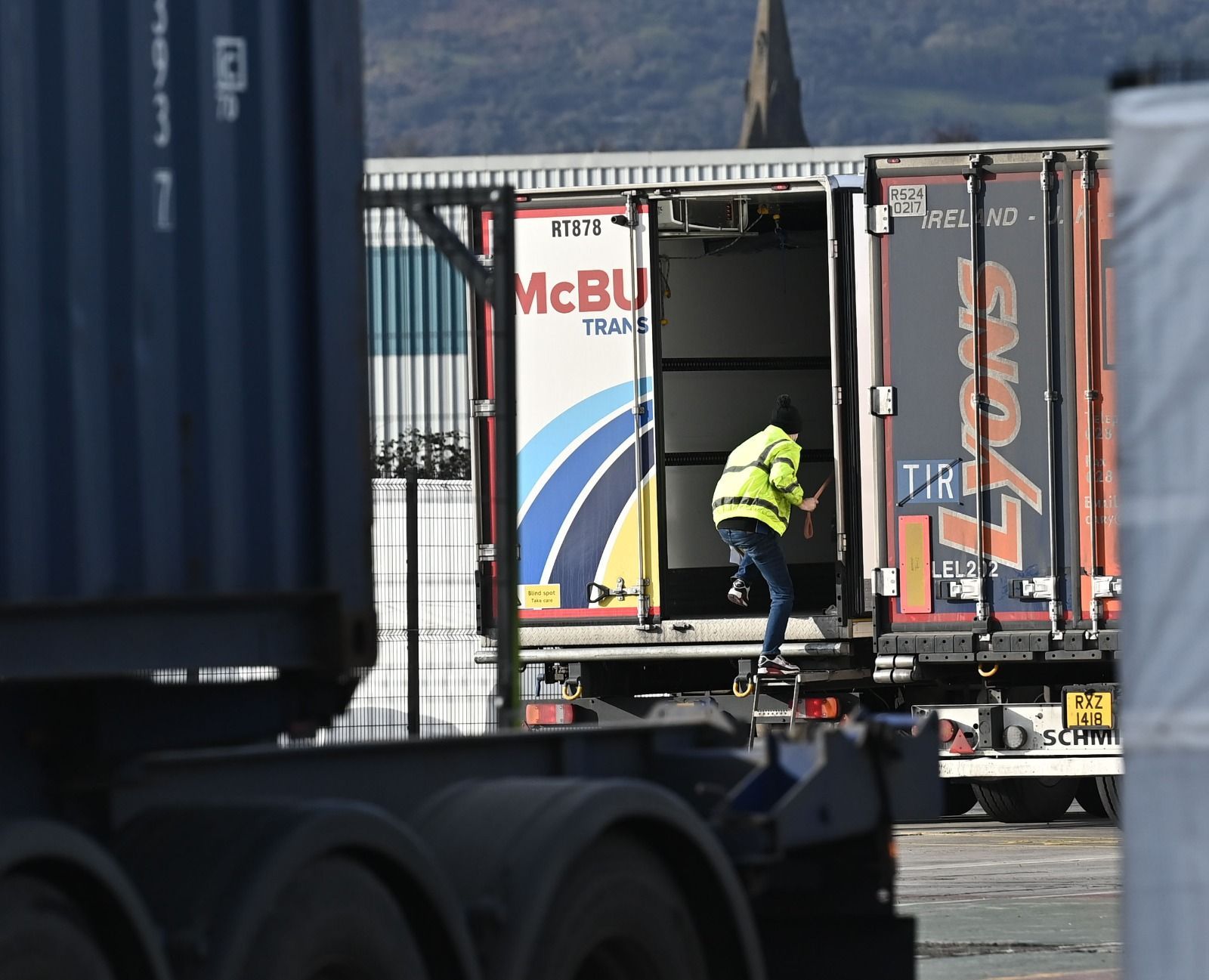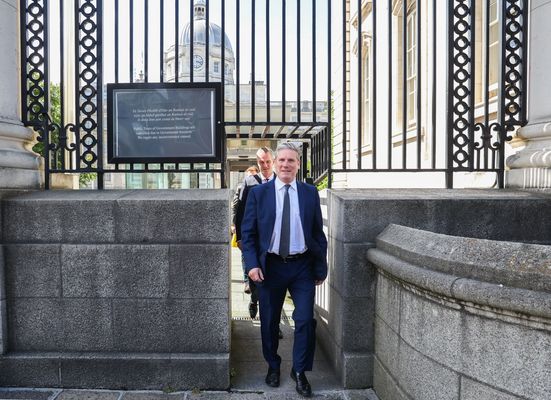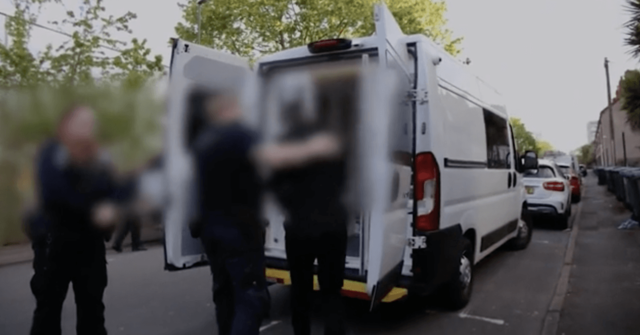LET'S be optimistic. Let’s assume the Assembly still exists at the end of 2024, has put the health service back on its feet, and is getting its head round the practicalities of building a national health service and other public services across a unifying Ireland.
Why 2024? Because in December 2024 – in less than three years’ time – the Assembly has its first vote on the Ireland/Northern Ireland Protocol, or, more specifically, whether it consents to the trading arrangements described in Articles 5 to 10 (which cover customs and the movement of goods, state aid, protection of the UK internal market, technical regulations, VAT, the single electricity market and state aid). Other Articles in the protocol (on the common travel area, equality and rights, committee structures, and North-South cooperation) are not subject to the consent mechanism and will continue to apply no matter how the Assembly votes.
The 2024 vote, enshrined in law, is why the question of the economic effects of Brexit and the protocol will not go away. The DUP representatives don’t like this vote because they can’t veto it. The vote (like the border poll when it comes) is to be based on a simple majority rather than the ‘cross-community voting’ (requiring a majority of both unionists and nationalists) used in the Assembly when a ‘petition of concern’ is tabled. It is a simple majority vote because the Assembly is being asked for its consent to the workings of an international treaty.
Although the DUP’s main opposition to the protocol is based on ‘sovereignty’, its leaders are not beyond using statistics to make their case. Or one particular statistic, the use of which peaked as Sir Jeffrey Donaldson pulled the plug on the Executive. This was the “£2.5 million a day or £100,000 per hour” statistic on the economic damage which he claims is due to the protocol – £900m per year, sometimes puffed up to a billion.
These numbers have been around for some time. They were first presented to the House of Lords sub-committee on the protocol by economist Esmond Birnie in June of last year. Birnie claimed that any business sending goods from GB to the north would face extra costs of six per cent in generating the documents and labelling required under the protocol. This “hit to business costs” caused prices to rise and some companies to stop supplying the north altogether.
The magical part of the argument was to turn this business cost into a “considerable” decline in the output of the north’s economy as a whole, “perhaps up to a similar figure of £600 million per annum, allied to fewer jobs”. This tentative outcome, from a thumbnail estimate of extra business costs, became an established fact in the hands of the DUP. Birnie repeated the headline figure in a piece for the News Letter (12 August 2021) published shortly after Lord Frost’s Command Paper on the protocol. Here he added £250m in costs borne by the government for Irish Sea border checking, required to prevent goods entering the EU without authorisation and to apply customs charges where relevant (a figure that BBC NI economics and business editor John Campbell said last week should be more like £7m). We were now up to £850m.
Analysis of the DUP's £850 Million protocol figure on BBC Newsline #brexit pic.twitter.com/3g13ImEsSh
— Jay J (@JibbaJabb) February 4, 2022
Later, Birnie updated his estimate to £900m in articles for the Belfast Telegraph and News Letter. He also drew some backing from a paper originally written in September 2020 (and published a year later) by two economists at Strathclyde University. Using a different method, they suggest that the damage to the north’s economy will be £900m to £1,000m in lost output per year when compared to not leaving the EU – a strange scenario given where we are. The loss of output, however, “may be reduced by the ability of NI firms to substitute intermediate inputs from GB for EU imports”. In the real world, it is already evident that garden centres that once coveted British soil around the rootstock of their roses are now importing plants from across the border.
The BBC has discovered a spine! @Jp_biz now challenging the total bull of the £850m cost of the #Protocol. The justification by the economist Esmond (?) Birnie is being entered for the Booker Prize for fiction.
— Tim McKane (@timmckane) February 4, 2022
It is astonishing that these numbers grew legs and travelled as far as they did. For six months the DUP have been parroting Birnie’s figures without challenge by interviewers or scrutiny by the likes of FactCheckNI. That’s not to say the stats went completely unchallenged. As long ago as September last year, Caoimhe Archibald, who chairs Stormont’s economy committee, wrote that Birnie’s figures were “as credible as the £350 million on the side of Boris’s bus”. In particular, she argued, they paid no attention to companies changing their supply lines away from Britain, nor referred to the data showing evidence of this (Irish News, 28 September 2021).
To assess this last point, we can turn to the monthly trade data from the south’s Central Statistics Office (CSO). The NI Statistics and Research Agency (NISRA) has just started to publish monthly trade data (19 January) but not for GB to NI flows. As John Campbell says: “The data exists. We just haven’t been given it.” Too politically sensitive? The latest figures on goods purchased from GB are for 2019.
The data exists. We just haven’t been given it. All commercial movements GB-NI need a customs dec.
— JPCampbellBiz - Open a window, keep your distance (@JP_Biz) February 7, 2022
To date the CSO has published eleven months of data for 2021 and already the value of imports from the south is up 31 per cent on the whole of 2019. With the full year’s figures we can expect the increase to be 43 per cent or more. NISRA’s figures say the north purchased £2,593m in goods from the south in 2019 so we can expect the figure for 2021 to be in the region of £3,700m. Even if Birnie’s £600m figure is close to the mark, it is more than compensated for by increased south-to-north trade. This is without going near estimates for the increased exports from the north to EU countries as companies take advantage of the north’s membership of the single market for goods. While the protocol puts a cost on imports from GB, the overall economic harm argument just doesn’t stack up.
Will NISRA provide better and more up-to-date statistics before the Assembly’s vote on the protocol? The fact that all imports from GB are supposed to be fully documented under the protocol should make it possible to produce timely and accurate data on trade flows from GB. But here lies another tale of Brexity foot-dragging. Mid-way through last year, the EU took a close look at progress on implementation of the protocol regarding animals and food products. According to RTÉ’s Tony Connelly, the audit was completed in early October but, “It was not made public, or shared with member states, since it needed the response of the UK authorities”.
At the end of January, Poots’s department placed the report in the Assembly’s library. The audit concludes that the UK government has failed to provide the human and structural resources to the relevant government department in the north which, “by virtue of the decisions it has taken on halting the recruitment of staff and stopping the development of border control post infrastructure, is impeding the full implementation of the Protocol.” The findings are damning because “the system in place for controlling the entry of animals and goods into the EU SPS… does not, and cannot in the current circumstances, function effectively”. No doubt Poots will wear the audit as a badge of honour.
Might be some of the best television ever recorded. And I’m including The Sopranos and The Wire. pic.twitter.com/k74mpu7fBF
— Some guy (@SkiddyWhips) February 4, 2022
So here we are again. International treaties dishonoured, statutory duties under-resourced, officials left exposed by poor ministerial leadership, a whiff of collusion between the UK government, the DUP and loyalism, and to top it off, “nationalists in the civil service” being warned not to “launch a constitutional coup”.
Let’s be optimistic that fewer and fewer people will continue to worship at this altar. And that the DUP goes back to seeing the protocol as an opportunity.
"Customs checks doesn't mean that you change the constitutional status of a part of the United Kingdom"
— BBC Spotlight NI (@BBCSpotlightNI) March 3, 2020
DUP MP Jeffrey Donaldson on customs checks#SpotlightNI pic.twitter.com/7e4veLgVmD









